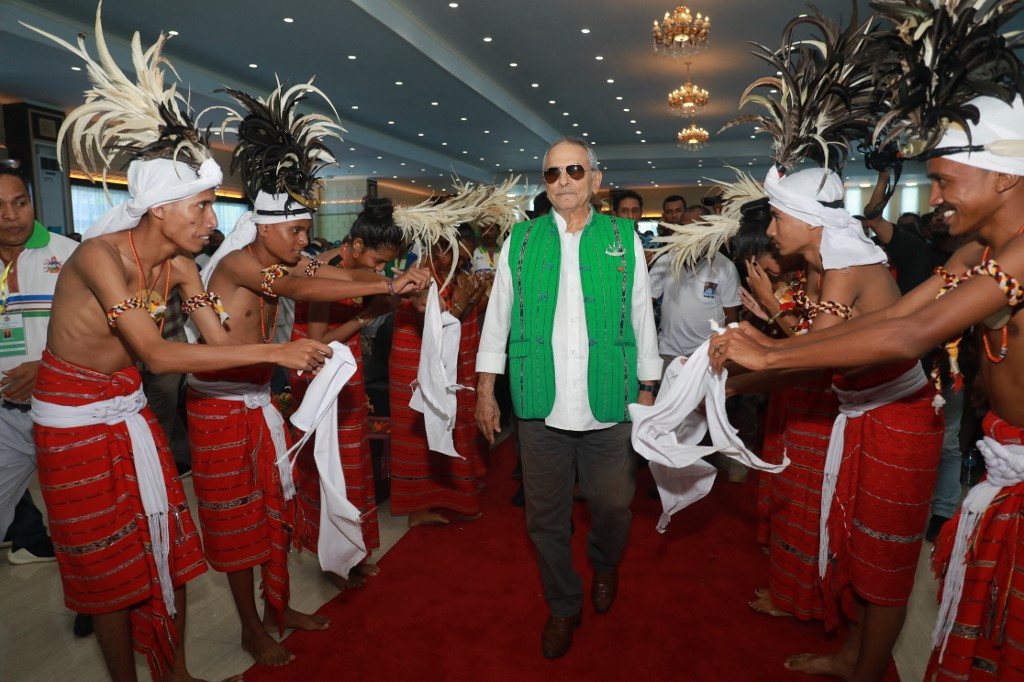Popular Reads
Top Results
Can't find what you're looking for?
View all search resultsPopular Reads
Top Results
Can't find what you're looking for?
View all search resultsTimor Leste’s politics
It is understandable that since Timor Leste’s independence in 2002, Ramos-Horta and freedom hero Xanana Gusmao have dominated the country’s politics.
Change text size
Gift Premium Articles
to Anyone
I
t is indeed a big relief to see Timor Leste’s presidential election proceed peacefully and democratically on Saturday. The young nation deserves international respect and honor for its ability to organize five democratic presidential elections in a row since becoming a fully independent nation in 2002.
The elected president of the country of 1.3 million people will be sworn in on May 20, when it celebrates its 20th anniversary of independence.
While Timor Leste decided on direct elections as the mechanism for choosing its national leader at the start of its being, it took Indonesia 59 years to do so. Indonesia, Timor Leste’s former colonial master, finally held a democratic legislative election in 1999, or 54 years after its independence.
This year’s direct presidential election in Timor Leste saw 16 candidates in contention, including four women. As reported by Reuters, an election runoff will likely be held after no candidate won a simple majority of the vote. The second round will pit 1996 Nobel Peace laureate Jose Ramos-Horta, 72, against incumbent President Francisco “Lu Olo” Guterres, 67.
According to preliminary counting, Ramo-Horta could only win 46.58 percent of the total votes, with President Guterres trailing in second place.
In the country’s political system, the president appoints a government and has the power to veto ministers or dissolve the parliament. In the meantime, a prime minister will lead the government’s day-to-day activities. The post goes to the winner of the parliamentary election.
If Ramos-Horta wins the runoff, he will become Timor Leste president for the second time. He served as president in 2007-2012, after previously serving as prime minister in 2006-2007.
It is understandable that since Timor Leste’s independence in 2002, Ramos-Horta and freedom hero Xanana Gusmao have dominated the country’s politics. Xanana was the inaugural president who governed from 2002 until 2007 and then became the prime minister for eight years until 2015.
It is s quite worrying, however, that Xanana reportedly still wants to regain the prime ministerial post. Both Xanana and Ramos-Horta come from the National Congress of the Reconstruction of Timor-Leste (CNRT), the main rival of Guterres’ Revolutionary Front for an Independent Timor-Leste Party (Fretilin).
For the sake of Timor Leste's people and also his reputation, it would be better for 76-year-old Xanana to take a noble role as the “father of the nation” and leave the political stage. It’s time for Xanana, as well as Ramos-Horta, to groom future national leaders.
Both Xanana and Ramos-Horta proved their contribution to the nation during the resistance movement toward independence from Indonesia. But apparently, they could not resist the temptation of power.
According to the United Nations, nearly half of Timor Leste’s population still lives in abject poverty, and 50 percent of its toddlers suffer from stunting as a result of severe malnutrition, while income gap is yawning. All this is despite the country’s huge revenue from oil and gas, from which 90 percent of government spending is sourced.
True, Xanana and Ramos-Horta led the nation to freedom, but they have yet to liberate their people from poverty, illiteracy and unemployment.











